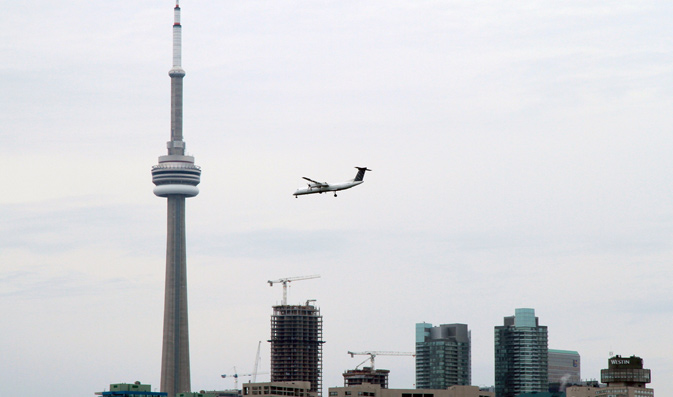TORONTO — Porter Airlines said that an article published in the Toronto Star by Calin Rovinescu, president and CEO of Air Canada, about the proposal by Porter Airlines to introduce jet service from Billy Bishop Toronto City Airport (BBTCA) was about protecting high-price routes from competition.
Robert Deluce, president and CEO of Porter Airlines, said that “in the debate regarding BBTCA, Air Canada’s clear interest is to stop additional competition on new routes in which it presently benefits from higher airfares, to the detriment of consumers. It is therefore unsurprising that Air Canada would seek to delay the introduction of competition and lower fares as long as it possibly could.”
Rovinescu said in the Toronto Star that “it is in a slot-constrained, virtual monopoly context that Porter has made a proposal to extend the runway at the airport and to allow jets to use the facility. However, in the public documents from the city on this proposal is a unique twist – there is a discussion of fixing slot and passenger capacities in the Tripartite Agreement, the document that governs Billy Bishop airport.
“Such a measure would permanently entrench Porter’s monopoly on the airport. If Porter was granted the ability to use jets without any increase in slot growth, this means that current communities being served by Porter (e.g. Sudbury, Thunder Bay and Halifax) could be dropped to make room for new routes from among the proposed destinations listed on their website. In addition, with jets doubling the passenger capacity, a passenger cap would in fact suggest that the total number of available slots would actually decrease, rather than increase.”
But Deluce argues that “since 2006, airfares have fallen by as much as 60% on routes Porter serves. For over seven years, Air Canada has used every means at its disposal to prevent Porter from creating competition on new routes. These tactics included the use of serial and abusive litigation, whereby Air Canada brought six separate legal actions against Porter since 2005. All of these proceedings have either been dismissed by Canadian courts or dropped by Air Canada.
“Air Canada operates 15% of the total flights at BBTCA. Air Canada conveniently does not mention it is the dominant air carrier at many airports across Canada, in some cases operating 100% of flights. Billy Bishop is a slot controlled airport with limits on the total number of flights. Such limits are common throughout the world – similarly slot restricted airports in North America include New York LaGuardia Airport and Washington Reagan National Airport.
“After its only competing airline was driven out of business in 1991, Air Canada enjoyed a monopoly on commercial flights at BBTCA through its Air Ontario subsidiary (later Jazz) for almost 15 years. During this time, its business was purposely consolidated at Toronto Pearson Airport until just one route with a handful of flights was left at BBTCA. Despite requests from the airport’s operator to participate in its service development, Air Canada refused at every opportunity,” said Deluce.
Porter is proposing to fly the Bombardier CS100 aircraft to longer-range destinations such as Florida, California, Vancouver, Calgary and Winnipeg in 2016.

